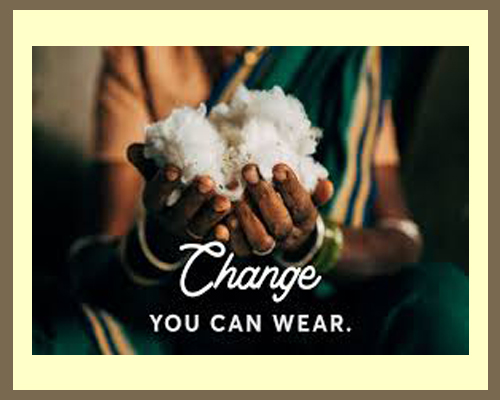When you choose organic cotton instead of conventional, for each piece of clothing you can potentially save water, energy and carbon emissions. It may not seem like much but start adding up the potential impact you could have made by converting the t-shirts and jeans in your entire wardrobe.
Organic fibres like cotton, wool, hemp,linen and other natural fibres are grown without the use of any chemical pesticides. These organic fibres are grown according to national organic standards with minimum or no use of toxic pesticides. Organic clothing is made up of materials that meet the organic agricultural standards. Textiles that use organic label, do not necessarily use 100% organic fibres. Organic fabrics are used for both, apparels and home textiles. Organic fabrics are eco-friendly, and are made up by treatment, which has a less impact on the environment.
Organic fibres also use less water. Organic clothing is one such way where different manufacturers have started growing interest in Eco-fashion. Environment friendly clothing is accepted by people of all age groups.
Eco-friendly organic fabrics absorb moisture and have a characteristic smoothness. Also, organic fabrics reflect and absorb light; and are thus, suitable to be used in any weather. Chemical dyes are not used for organic clothing; and the color palette for organic fabrics is limited, generally earthy colors. Organic fabrics are easy to be taken care of, they can be washed in machine with cold water.








